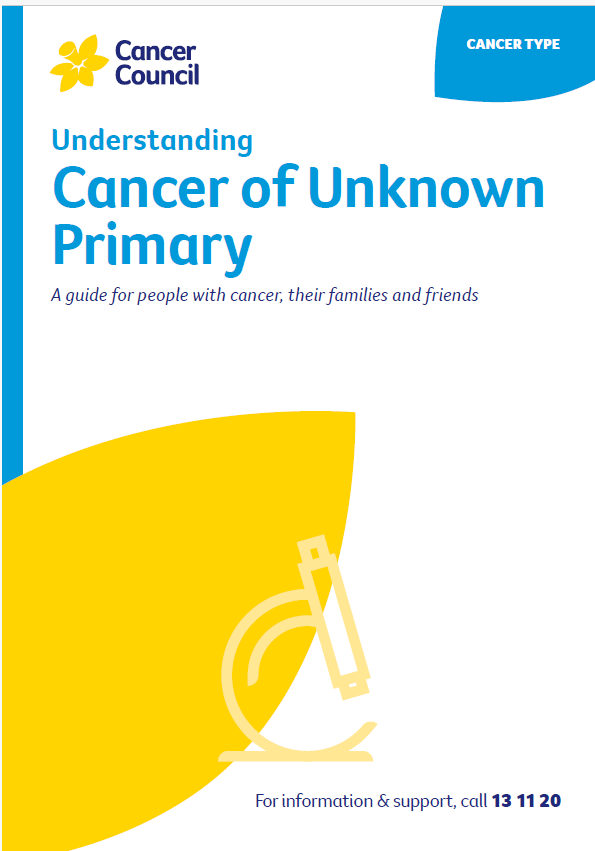Biopsy
A biopsy is when doctors remove a sample of cells or tissue from an area of the body. A specialist doctor called a pathologist examines the sample under a microscope to look for signs of cancer and work out what type of cell is affected. This can point to where in the body the cancer may have started.
Learn more about:
Ways of taking biopsies
For a biopsy, you will usually have a local anaesthetic to numb the area. In some cases, you may need a general anaesthetic, which puts you to sleep.
There are different ways of taking a biopsy and you may need more than one type. A biopsy is often done using an ultrasound or CT scan to guide the needle to the correct place. You might not have a biopsy if the cancer is too hard to reach or if you are too unwell for the procedure.
Common types of biopsies used to diagnose cancer include:
- fine needle aspiration – removes cells using a thin needle
- core biopsy – removes tissue using a hollow needle
- incision biopsy – cuts out part of a tumour
- excision biopsy – cuts out the whole tumour.
Tests on the biopsy sample
| Using special stains (immunohistochemistry) | After the biopsy procedure, the sample will be sent to a laboratory, where a pathologist uses a series of stains on the sample. These stains may show changes in the cells or highlight markers (e.g. specific proteins) that are linked to certain types of cancer. |
| Looking at the molecular level | In some cases, you may be offered extra tests on the biopsy sample. These are called molecular or genomic tests, and they look for gene changes and other features in the cancer cells that may be causing them to multiply and grow. The results may suggest what the primary cancer is most likely to be and which targeted therapy drugs may work best to treat it. |
Molecular testing for CUP is usually not covered by Medicare, which can make it expensive. Check what costs are involved and how helpful it would be. If you are having molecular testing as part of a clinical trial, the costs may be covered. Ask your cancer specialists for more information about these specialised tests.
→ READ MORE: Endoscopy for CUP
Podcast: Tests and Cancer
Listen to more of our podcast for people affected by cancer
More resources
Prof Chris Karapetis, Network Clinical Director (Cancer Services), Southern Adelaide Local Health Network, Head, Department of Medical Oncology, and Director, Clinical Research in Medical Oncology, Flinders Medical Centre and Flinders University, SA (Clinical review); Dr Amey Aurangabadkar, Radiologist, Illawarra Radiology Group, NSW; Clare Brophy, Consumer; Prof Katherine Clark, Clinical Director of Palliative Care, NSLHD Supportive and Palliative Care Network, Northern Sydney Cancer Centre, Royal North Shore Hospital, NSW; Prof Wendy Cooper, Senior Staff Specialist, Tissue Pathology and Diagnostic Oncology, NSW Health Pathology, Royal Prince Alfred Hospital, NSW; A/Prof Richard Gallagher, Head and Neck Surgeon, Director of Cancer Services and Head and Neck Cancer Services, St Vincent’s Health Network, NSW; Dr Chloe Georgiou, Oncology Research Fellow, Australian Rare Cancer Portal, and Oncology Trials Fellow, Bendigo Health Cancer Centre, VIC; Dr Susan Harden, Radiation Oncologist, Peter MacCallum Cancer Centre, VIC; Justin Hargreaves, Medical Oncology Nurse Practitioner, Bendigo Health Cancer Centre, VIC; Dr Laura Kirsten, Principal Clinical Psychologist, Nepean Cancer Care Centre, NSW; Prof Linda Mileshkin, Medical Oncologist, Peter MacCallum Cancer Centre, VIC; Caitriona Nienaber, 13 11 20 Consultant, Cancer Council WA.
View the Cancer Council NSW editorial policy.
View all publications or call 13 11 20 for free printed copies.

